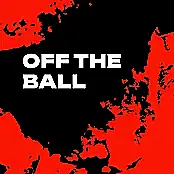If football's regulations had never changed between 1863 and the present day, the sport would have looked odd - with plenty of hindsight of course - without goal nets, fourth officials or shirt numbers.
But the Laws of the Game are often revised from to time with subtle and sometimes drastic effects on the way professional football is played.
The ones proposed by former Netherlands and AC Milan striking great Marco van Basten would certainly do so.
The FIFA Chief Officer for Technical Development has mused about the possibility of scrapping offsides from the game as well as turning penalty shootouts into old-school MLS style run-ups from 25 metres rather than stationary shots from a designated penalty spot.
Yellow cards and the introduction of sin bin style punishments were also discussed by the Dutchman.
Whether any of those ideas ever get A) any traction and B) is implemented in full in future, we'll have to wait and see.
But over the years, some rule changes have had a positive effect on football.
The Back-pass rule
This was officially introduced in 1992 off the back of the irritating tactics that were increasingly prevalent previously.
At the 1990 World Cup, it was common for teams to pass the ball back to their goalkeeper, who was allowed to pick it up with their hands under previous rules, thereby slowing down the game and giving defences an easier option when in trouble.
As a result, the International Football Association Board (IFAB) acted and the back pass rule was introduced which outlawed goalkeepers from picking the ball up when an outfield team-mate directly kicks or passes the ball to them.
In terms of effects, the rule change has been credited with creating a foundation for the type of pressing that Pep Guardiola's great Barcelona side of 2008 to 2012 engaged in, as opposition teams can't just relive pressure by passing the ball back into their goalkeeper's waiting arms.
In his book, The Great and the Good, Ireland legend and Newstalk pundit John Giles said that "we should be eternally grateful for the introduction after Italia '90 of the back pass rule" because it also "by happy accident made the Vinnie Joneses of this world obsolete".
Introducing penalty shootouts
Replays, coin tosses, drawing lots etc. That's how drawn games used to be decided. But given the drama, tensions, heroes, villains and legends that have been created around it, bringing in the penalty shootout has been a masterstroke in major tournaments like the World Cup and Champions League.
Sure, England might have won a tournament or two if it hadn't been brought in! (I jest... I think).
And for us, the Packie Bonner penalty save from Romania's Daniel Timofte at Italia 90 is not just part of Irish soccer lore, but also a memorable part of this country's wider history on the international stage.
The penalty shootout was introduced in 1970 and the first to be played came 12 years later in a classic of the genre when West Germany and France went head to head in one of the tournament's all time greatest fixtures.
The tension is almost unbearable as a neutral given that you can't help commiserating with players who do miss kicks. But then again that tension can also be marked down as overwhelming excitement.
Zero tolerance for the tackle from behind
Prior to the 1998 World Cup, FIFA made the tackle from behind a red card offence. The wording emphasised that it was a tackle "which endangers the safety of an opponent".
Indeed, what the aforementioned Van Basten had to endure during his career is said to have contributed to the introduction of zero tolerance for tackles from behind the player with the ball.
The Dutch great's playing career ended prematurely at the age of just 28 in 1993 with the effect of dangerous tackles on him believed to be one of the reasons.
Any rule change that reduces the prevalence of brutal and cynical tackles has to be considered a good thing, with the zero tolerance against the two footed challenge (albeit when referees spot it consistently) also being a positive addition to the game.
Download the brand new GoLoud App in the Play Store & App Store right now! We've got you covered!
Subscribe to OffTheBall's YouTube channel for more videos, like us on Facebook or follow us on Twitter for the latest sporting news and content.








